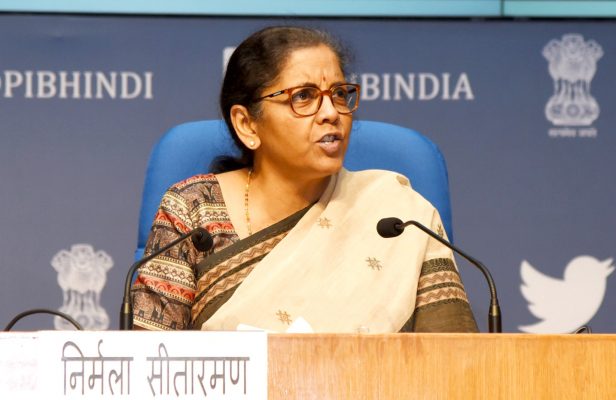
New Delhi: In a move to encourage domestic industry in the defence equipment sector, the government will make separate budgetary provisions for procuring only India made defence items and will generate a negative list of weapons that can be imported as part of larger reforms to boost the economy in the post Covid-19 world.
Announcing a series of reforms for defence production on May 16, Finance Minister Nirmala Sitharaman said that the idea is to bring down India’s large weapons import bill and while certain high technology systems will still be procured from abroad, emphasis will be on procuring locally made products.
The minister said that the long pending corporatisation of the Ordnance Factory Board (OFB) has been approved that will enable them to cut costs and overheads for more efficient operations. She also said that the OFB factories could be listed in the markets in the near future to bring in transparency in their operations.
The corporatisation of OFB has long been contested by staffers but the defence ministry has gone ahead with the process with a detailed roadmap for implementation ready. Sitharaman emphasised that this does not mean a privatisation of the factories but is being done to improve performance.
The government also announced that the Foreign Direct Investment (FD) limits are being enhanced from 49 per cent to 74 per cent under the automatic route, even though security clearances will still be required. It is not immediately clear how much impact this could have, given that even 100 per cent FDI is currently allowed in the defence sector on a case by case basis.
On imports, the minister said that while essential weapons not produced here will be sourced from abroad, a negative list will be generated and notified for which all imports will be banned. This list will be generated by the Department of Military Affairs (DMA) and will have year wise timelines to reduce import dependency.
The government said that it would also move towards indigenisation of spare parts for foreign systems that are already in service. Indian industry will be encouraged to produce spare parts locally for the consumption of the armed forces.
The minister also announced the government’s intention to speed up the procurement process by bringing in mechanisms to make realistic General Staff Qualitative Requirements (GSQRs). These are the performance criteria set up by the forces to procuring new systems.
The minister said that there have been cases when unrealistic GSQRs have resulted in a lengthy search for weapons and often results in the selection of a single vendor that is against the rules.
Besides the overhauling of testing and trial procedures, the defence ministry will also set up a Project Monitoring Unit to support contract management.








